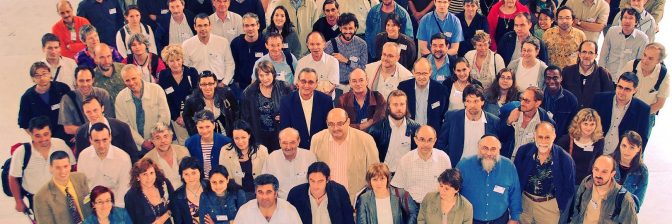Workshop format
The workshop will be organized around thematic sessions, over 6 half days, each one being introduced by a plenary talk. The contributions may be of the following types:
- Contributed papers,
- Invited session proposals,
- Invited papers,
- Tutorial papers,
But also:
- Prospective or Discussion papers (about 3 pages)
Regular papers presented at CPDE’16 will be hosted and freely available on-line in the IFAC-PapersOnLine website and will be citable via an ISSN and a DOI.
You can download the PDF of the first Call for Papers here!
Scope
Distributed parameter systems, which are mathematically described by partial differential equations, impose a formidable challenge in many applications coming from classical industrial fields as well as emerging fields related to energy, transport, communication or medical science. Herein, the distributed parameter description becomes an essential ingredient of the modeling and analysis process if the spatial or property distribution of the system variables cannot be neglected. Typical examples comprise chemical or biochemical reactors, thermal and electrochemical systems, smart and vibrating structures, flow problems, propagating waves, or systems for energy production, distribution and storage. The dynamic operation of these distributed parameter systems essentially relies on the incorporation of suitable control and estimation strategies to influence the system dynamics and to enlarge the dynamic operating range. Starting from these observations new approaches to the control of distributed parameter systems directly exploit the structural system properties to develop dedicated analysis and design techniques to address the spatialtemporal system dynamics. The control design for systems modeled by partial differential equations hence resides at the intersection of mathematics, systems and control theory, control systems technology, and computer and information science making it essential to provide a joint forum to foster and evolve this important and emerging field of research.
Topics
The topics of the workshop will cover new and state-of-the-art developments in modeling and control of distributed parameter systems and its application. This covers approaches and techniques for the modeling, analysis, control, and observer/estimator design for systems governed by partial differential equations and includes (but is not limited to) methods such as differential geometric and algebraic approaches, semigroup and operator theory, Lyapunov-based and backstepping techniques, passivity and dissipativity, optimal control, controllability and observability analysis, stability theory, model reduction for control, computational methods, real-time control, actuator and sensor placement, experimental design.
In addition, applications are considered covering, e.g., smart and adaptive structures in mechatronics, marine systems and aerospace engineering, flow control, energy generation, distribution and storage, process intensification and process systems engineering, adaptive optics, quantum systems, distributed cooperative systems, communication, embedded actuators and sensors, traffic control and network congestion, and flexible micro-structures.

